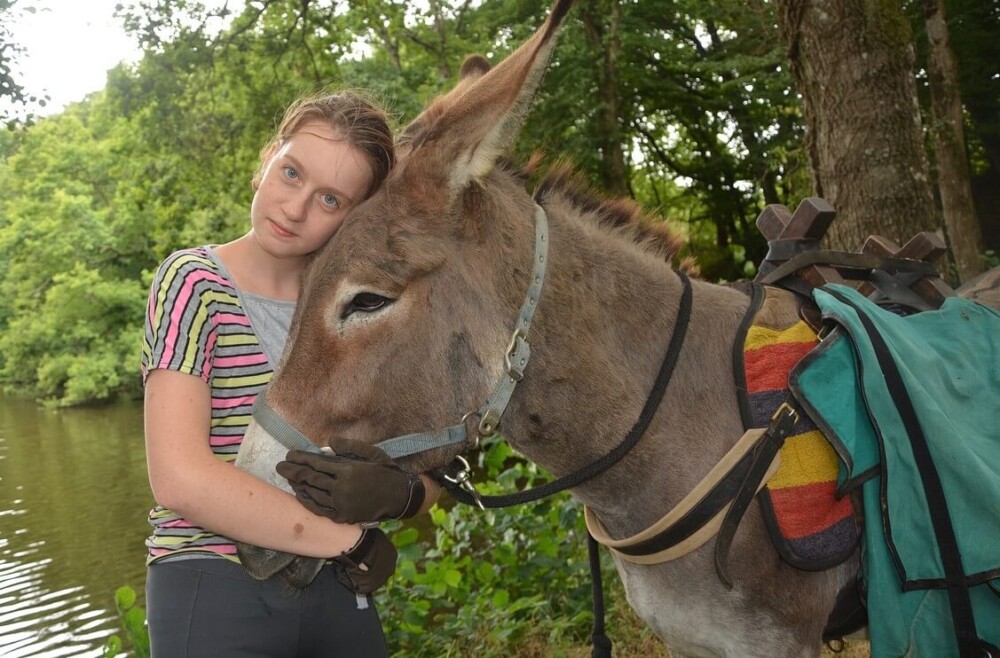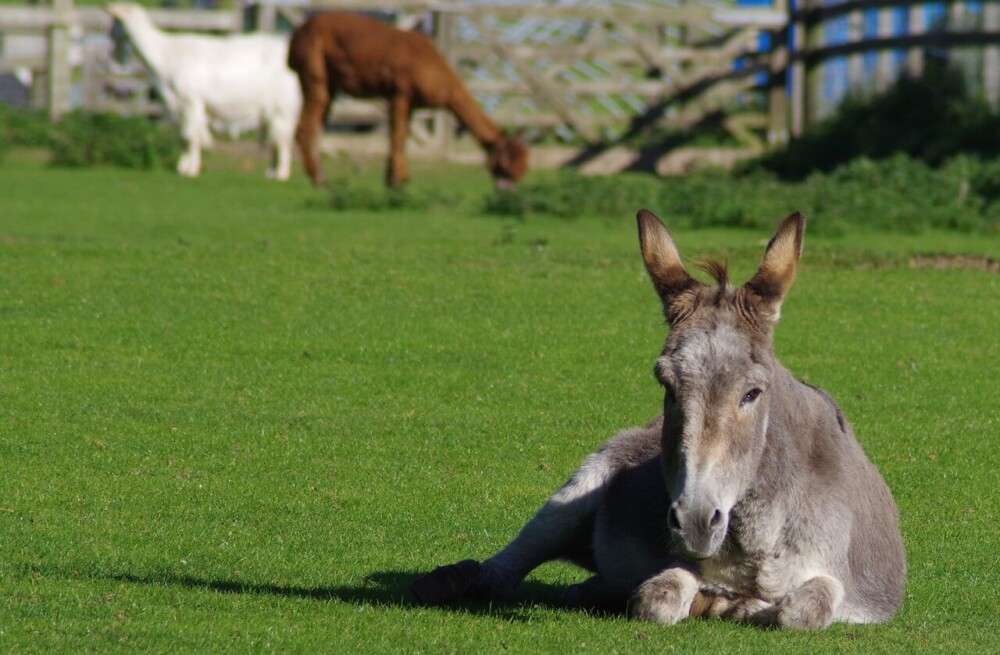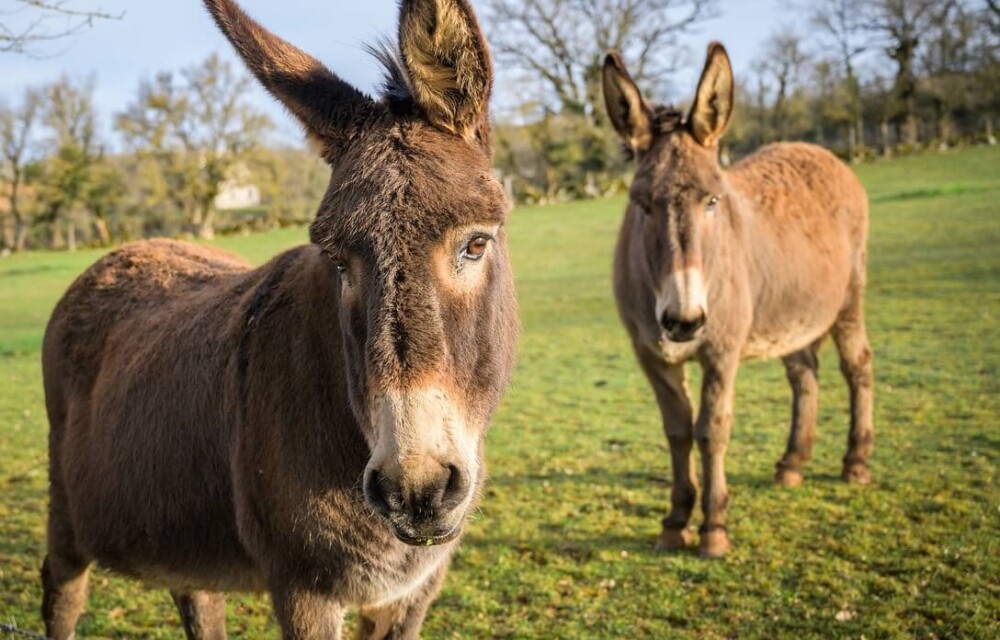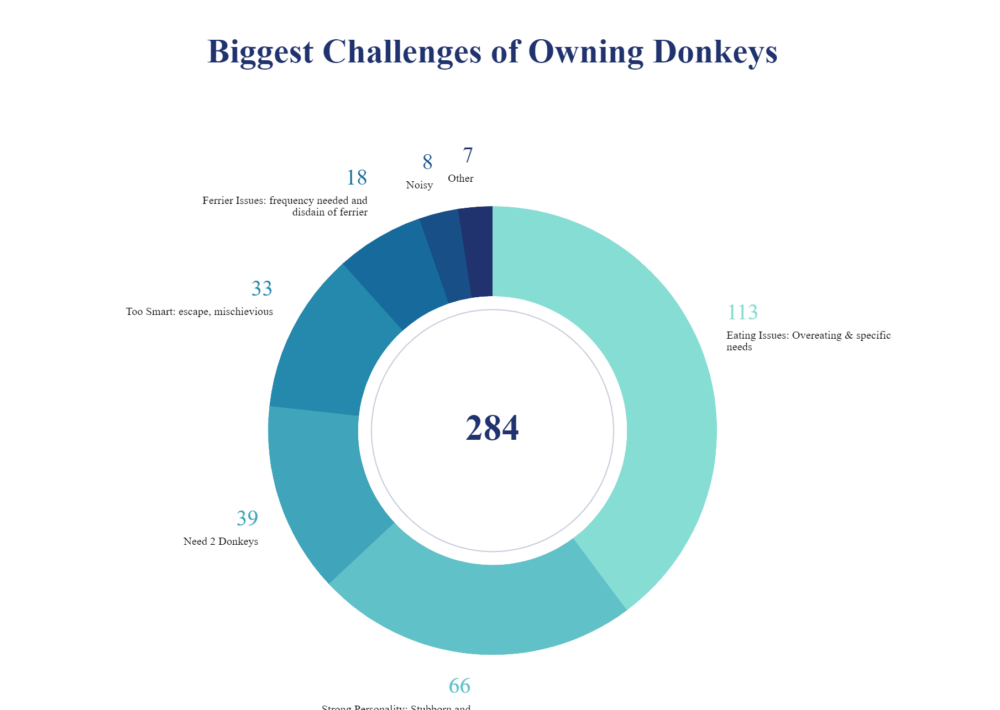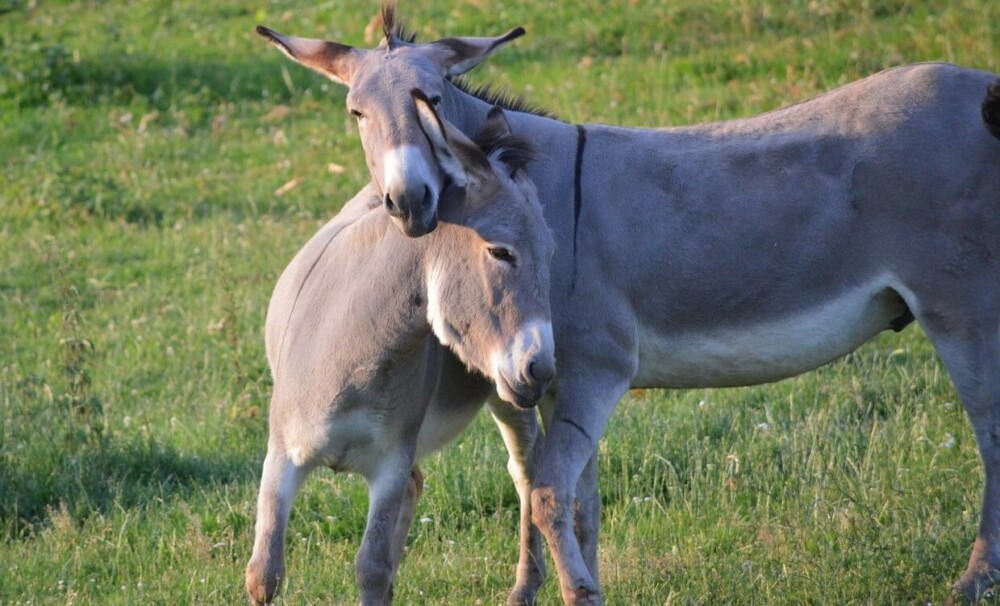Donkeys are often viewed by many to be both stubborn and aggressive, but their unique characteristics and charm might make them tempting to have on a small farm. I wanted to find out the biggest challenges of owning a donkey, so I surveyed over 200 donkey owners. I asked them the most difficult aspect of owning donkeys and why someone would want to avoid owning donkeys.
The biggest cons of owning donkeys (from 285 donkey owners) The top difficulty in owning donkeys arise around feeding problems. Donkeys are very prone to overeating, they will eat the wrong foods, and they often face weight problems, including a broken crest. Donkeys have a powerful personality, which can be overcome with a correct understanding of them but makes working with donkeys extremely difficult for the novice.
The need for companionship came in as the third biggest challenge, including the companion’s costs, space, and feed. Some of the results may surprise you. Let’s dive in!
Cons of Owning Donkeys
Before you purchase a donkey, there are a few things to be aware of. We polled 285 donkey owners and found out what makes owning donkeys hard. This information is straight from those who have experience with donkeys.
Let’s cover the disadvantages of owning donkeys!
Easy to Overfeed
The biggest challenge of owning a donkey is ensuring proper feeding. Donkeys have an incredibly efficient digestive system. They have a digestive system like a horse but can process nutrients out of nutrient-poor plants like goats and sheep. When donkeys are fed calorie and nutrient-rich foods, they can very easily overeat and become overweight.
Overeating was the TOP difficulty cited by donkey owners. That included weighing and rationing their food, marking sure they obtained low-calorie feed and preventing their donkeys from getting into the wrong feed, especially when other animals were around with different dietary needs.
But, if you can resist the urge to overfeed your donkey by limiting their available food to the correct portions, their efficient digestive tract has a huge benefit: Donkeys are cheaper to feed than horses and can handle poorer foods.
Personality Issues: Stubborn & Hard to Convince
The second biggest challenge donkey owners face the strong personality their donkeys have. Many people chalk donkey personality issues up to stubbornness, but it’s really two-fold. Donkeys are incredibly intelligent and very opinionated.
In the beginning, donkeys can be difficult to get them to do what you want. They are stubborn. But one donkey owner I spoke with put it this way “They are NOT stubborn. They are wary. Building trust with your donkey without negative treatment is more important than anything else. Once you build that trust, they will be your best friend!”
A donkey may seem stubborn and hard to work with for the novice or undependable (from a donkey’s view) owner. But, once you’ve proven yourself and treated them calmly and consistently show them kindness, donkeys will turn that “stubbornness” into a “stubbornness” in their efforts to please you.
I was warned repeatedly by donkey owners never, NEVER to get angry or frustrated with my donkeys. I was told they would remember it forever, hold a grudge, and make it much more difficult to work with my donkeys.
Many people consider donkeys to be stubborn and aggressive, and in many cases, this can be true. Donkeys might look similar to horses and ponies, but their brain works very differently. A donkey can have extreme mood swings from one day to the next, making them unpredictable at best. Geldings (castrated males) are the least prone to these aggression issues, but even they can have an attitude if it helps them get what they want. Donkey owners must be prepared to spend more time training to show the donkey that this behavior will not be tolerated.
High Intelligence
Among the named personality challenges, a donkey’s high intelligence was second only to their strong and stubborn personality. The owner told me stories of their donkeys’ high intelligence, and many owners of horses and donkeys stated that their donkeys are smarter than their horses.
They have incredibly long memories, which can greatly benefit their owners because once trust is won, it is kept for life. Whereas horses, and many other animals, tend to get a little wilder if they aren’t handled as frequently, donkeys usually remember their owners and continue to trust them.
But, if you break that trust, it can be tough and very long to overcome. You may never overcome breaking a donkey’s trust or getting angry at them.
Must-Have a Companion
Donkeys get lonely and won’t be as healthy or happy if they are kept alone. They suffer greatly from loneliness. Donkeys must have companionship. They are herd animals. Donkeys do best with another donkey as a companion. If a specific donkey has been raised with other animals as companions, they can do ok with goats or horses but usually do best with other donkeys.
This requirement raises the overall costs of keeping a donkey if you don’t already have another animal that can be a companion.
Ability to Open Gates
Donkeys are very capable of learning how to open gates, potentially letting your other livestock out of the pasture and into harm’s way. Donkeys can also get into feed storage areas or tool sheds, wreaking havoc in very short order. Padlocks are often needed to deter this behavior.
Donkeys are sometimes too smart for their own good. Their intelligence is both a pro and a con. Occasionally donkeys will figure out how to open the gate to their pen and get into the feed storage areas to indulge in grain. This not only leads to a huge increase in the feed bill but can also lead to severe medical issues in the donkey, forcing you to spend even more money on veterinary visits due to overeating.
Hoof Maintenance
Hoof care is a consistent concern and difficulty for donkey owners. Donkeys, like all equines, need routine hoof maintenance to keep them sound. But, many farriers will not work with miniature donkeys simply due to their small size, and that the farrier needs to bend over much more than usual to work with them. Add to this that some donkeys don’t like the Ferrier and will fight against him (or her).
It is essential to train your donkey to accept the Ferrier. It’s equally important to find a farrier who enjoys donkeys and shows patience and kindness, even in difficult situations.
Aggression
At times, donkeys have an unpredictable nature, especially jacks (stallions) or jennies (mares) in estrus. Food aggression is common among many donkeys, kicking or biting when the donkey is excited or startled. Of the 285 people I polled, only 3 listed aggression as a major concern. Instead, donkeys are considered thoughtful, and they often pause to consider a situation, which can be seen as aggression because they don’t run away as easily.
But, that aggression, or ability to confront danger, is the very thing that makes donkeys good guard animals.
Medical Costs
While donkeys are naturally very healthy animals and not overly prone to any equine diseases, it can be costly if the need does arise for veterinary care. The biggest reason for medical care cited in our poll was due to improper diet. This included many donkeys getting out and eating pasture or feed that wasn’t meant for them and then developing colic or other digestive issues.
Donkey Noise
Donkeys can be extremely and consistently loud. They don’t have the gentle nicker of a curious horse or pony. Instead, they have a high decibel braying which can end in an extremely shrill squeal.
It is how the donkey communicates everything, so it can happen when the donkey is excited to see you, or if it hears the grain hitting the feed pan, or if the donkey sees a predator. Your family and your neighbors may not appreciate this less than soothing sound at all hours of the day and night.
Although almost all of the donkey owners agreed that donkeys are generally noisy, only 8 (<1%) of them cited it as an issue. But, if you have close neighbors, it may be a consideration.
Pros of Owning Donkeys
Although the cons of owning donkeys may seem overwhelming, many of them are also considered great assets in favor of donkey ownership. Donkeys have high intelligence, can be trained to handle a wide variety of situations, are extraordinarily loyal, and often easier to care for than horses or goats.
But, there are other pros of owning donkeys. These include their ability to act as livestock guardians, their overall ease of care, and their common availability.
Extreme “Cute Factor”
Although the cuteness of donkeys isn’t usually cited as a benefit, it was one of the highest-scoring benefits of donkey ownership. Donkeys are considered cute, not just because of their looks but also because of their personality. They are extremely playful, loyal, and fun to have around.
Available Anywhere and Affordable
Donkeys are easily found in most areas worldwide, including extremely arid areas where horses might not thrive. Donkeys can often be found at extremely reasonable prices as well. It’s not uncommon in the United States to find a pet donkey available for sale at $100 or less.
Longevity
Donkeys have a long lifespan of around 20 years or more if properly cared for. That gives you many years to build a strong relationship.
Their lifespan is similar to other equines, but it’s not uncommon for a healthy donkey to live well past its estimated lifespan. Several donkey owners I spoke with stated that their donkeys were over 40 years old, and one even had a 53-year-old donkey.
Ease of Feeding
For the most part, you can keep donkeys on pasture alone, with no grain or hay supplementation needed throughout the spring and summer months. In the winter, their feed costs remain relatively low in comparison to most other farm animals. Donkeys need lower-quality feed.
That usually means it’s cheaper than alfalfa and other high-energy, high-protein feed that horses eat. Plus, ounce for ounce, donkeys will eat less than a horse that weighs the same as them.
Use as a Utility Animal
Donkeys can be used as livestock guardians, trained for log hauling, or kept for their milk production. They can be trained for many tasks and situations, including children, the farrier, travel, chores, and more.
Their smaller size and more compact body can make them suitable for harness work in tight spaces where horses and oxen may not go. This also helps with irregular pastures that make it harder for other animals to graze.
Willingness to Work
Donkeys need a little more upfront training and time to build trust with their trainer, but once this happens, they quickly catch on to new tasks. Once trained, donkeys are eager to work and determined to please their owner.
Donkeys of all sizes also work well under harness for both pleasure and utility purposes. Whether you are looking for an alternative to a miniature horse or pony to pull your pleasure cart or need a small and sure-footed animal to haul logs out of a dense forest where horses or oxen cannot fit, a donkey is a great choice for harness work of all kinds.
Great for Children
When raised correctly, a donkey can make an outstanding pet for both children and adults. If a horse is too expensive or not readily available in your area, a donkey could be a suitable alternative. Donkeys can be found in miniature, standard, and giant sizes.
Depending on the size of the donkey, they can be used as a riding animal, the same as a horse or pony. Many children are intimidated by the larger build of a horse or pony. Still, the smaller size and more compact shape of a miniature or standard donkey is often a welcoming sight to timid or young riders.
Great Guard Animal
Donkeys are also extremely well suited to thrive on poor pasture in arid climates, making them an excellent choice to use as a guard animal with goats or sheep. Plus, they aren’t timid, so they’ll stare down a threat. Donkeys will kill invading animals, including foxes, skunks, raccoons, coyotes, and attack dogs. All of this makes for a great guard animal.
Donkeys are commonly used as livestock guardians in place of a dog or llama. They bond with sheep, goats, small or young cattle, and alternative livestock such as alpacas and emus. The donkey’s natural dislike for canines makes them an excellent deterrent for coyotes and feral dogs. A donkey can quickly send a coyote fleeing away from your livestock from their loud braying and their swift kick.
But, if you choose to keep a donkey as a guard animal, it’s important to take precautions still to keep larger predators away. Donkeys have been greatly injured and killed protecting their “herd.”
Great for Difficult Pastures
The donkey’s ability to utilize nutrients from even poor roughage not only opens up more areas for keeping your donkey but lowers their overall costs of care drastically. Donkeys thrive in very difficult deserts because they can obtain nutrients out of almost impossible vegetation. While you may still need to supplement hay or grain through the winter, the cost of feeding a donkey remains much lower than feeding a horse or pony of the same size.
Ease of Training
When given proper training and the trainer has plenty of patience, a donkey can learn tasks and skills much quicker than a horse or pony. Donkeys are extremely smart, but they can also be quite wary of someone new or new training. However, once they learn to trust you and your training methods, they are often considered to be the easiest equine to train.
Conclusion
Donkeys are definitely not the right choice for everyone. But, they are a great fit for many people. Understand how donkeys think. Listen to them. One owner said, “if the donkey isn’t doing something- there’s a reason. Look for it.” Another owner said, “Donkeys are more wary than stubborn. They need to know they can trust you, and then they’ll do anything for you.” For many people, donkeys are the perfect farm animal!
My Favorite Equine Resources For Horses and Donkeys
This list contains affiliate products. Affiliate products do not cost more but helps to support BestFarmAnimals and our goal to provide farm animal owners with accurate and helpful information.
Squeaky Chicken Toy is hilarious to watch and the horses love it! It’s not super tough so keep it away from dogs.
Dewormer with Ivermectin: I use this for my horses and my goats. Duvet makes a great dewormer. I switch between the Ivermectin one and one like this one so the worms don’t get immune to it.
Manna Pro Apple Flavored Nuggets are a delicious smelling treat that my horses go crazy over.
Equinity Amino Acid Supplement for Horses makes a big difference for any horse that’s struggling with arthritis, hoof issues, or just generally. It’s great for older horses who can’t absorb all the nutrients in their food as well!
Manna Pro Weight Accelerator helps older horses gain weight and stay healthier! This was especially helpful when one of my older horses lost weight over the winter and helped her regain her weight over the summer!
Farnam Fly Control goes on the horse or donkey and will keep the flies off your sweet pet. It makes horses way more comfortable and will keep sores from getting infected as well.
Wound Kote protects sores and wounds. It acts as an antiseptic and helps wounds heal faster. It works on both my horses and goats.

